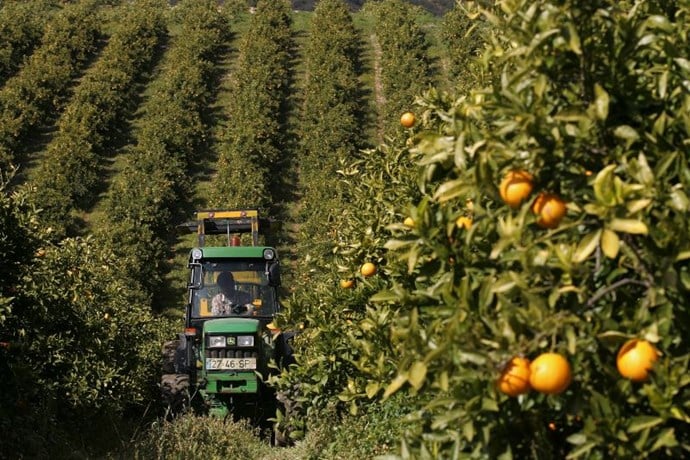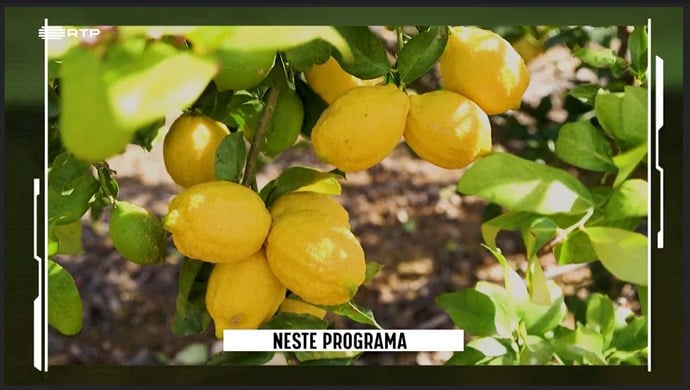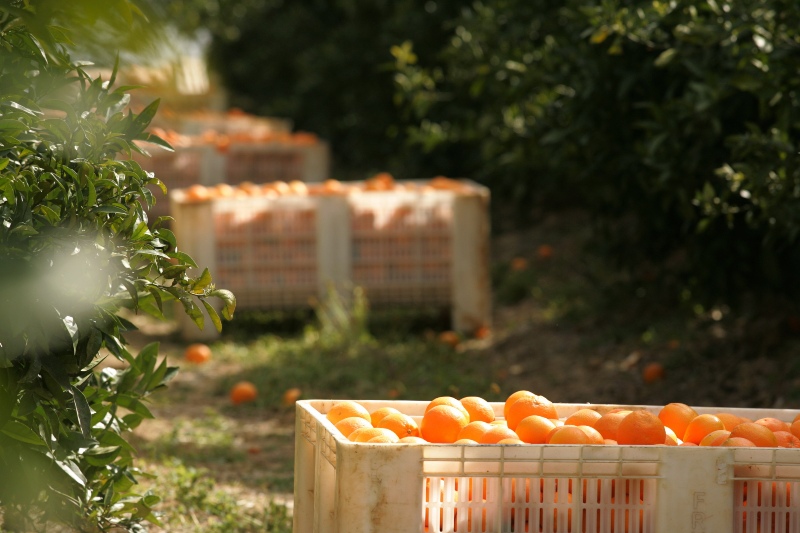Sweet and certified: Citrus of Algarve PGI
Algarve, the most southern area of Portugal, is famous for its sunny beaches. But the region is also known for its green hills and its extensive orchards that deliver superior quality citrus fruits. With 300 days of sunshine along the year, non-intensive production and a soil rich in phosphorus and potassium, these fruits develop a bright and intensely colored peel and juicy pulp. The carefully controlled Citrus of Algarve PGI (Citrinos do Algarve IGP) seal proves their uniqueness and quality.
Citrus of Algarve PGI includes oranges, clementines, tangerines, grapefruits and lemons. The production area is restricted to the municipalities of Albufeira, Castro Marim, Faro, Lagoa, Lagos, Monchique, Olhão, Portimão, S. Brás de Alportel, Silves, Vila Real de Santo António, Loulé (except the civil parish of Ameixial) and Tavira (except the civil parish of Cachopo).

Assurance of regional origin
Rita Hilário is PGI scheme manager at Kiwa Portugal (previously Sativa): “Citrinos do Algarve IGP, or in English Citrus of Algarve PGI, is a so-called Protected Geographical Indication by the European Union. The fruits have the original characteristics of the varieties from the region that we control and verify.”
Rita is involved in the certification of Citrus of Algarve PGI. She explains about the certification process: “Producers of citrus fruits in this delimited region who want to have their products certified as Citrinos do Algarve PGI, must meet the required product specifications. Kiwa Portugal provides the Citrinos do Algarve PGI certification. We analyze each application and we then audit for compliance with the required specifications.”
“It is important to uphold the principles of the certification scheme,” Rita continues. “Once we have verified that a producer does indeed comply, and doesn’t have any non-conformities that might compromise certification, we’ll issue the certificate. Afterwards, we regularly verify if they continue to meet the requirements. Only then, producers are allowed to label their citrus fruit Citrinos do Algarve PGI.“
“During the 2020-2021 campaign, six more producers have already signed up for certification. At this moment, we have 12 packaging units certified according to Citrus of Algarve PGI that involve around 150 citrus producers suppliers. This demonstrates that the market, the consumer, is increasingly asking for this type of certification as a visible quality mark.”
Is this amazing fruit only sold in Portugal or also in other countries? Rita explains: “About 80% of the Algarve citrus fruits are sold on the national market. The rest are shipped mainly to Germany, France, Spain, the United Kingdom and Switzerland.”
Protection of traditional products: PDO and PGI
The EU quality schemes PDO (Protected Designation of Origin) and PGI are both intended to protect the names of specific products to promote their unique characteristics, linked to their geographical origin as well as traditional know-how.
Product names registered as PDO are those that have the strongest links to the place in which they are made. PGI emphasizes the relationship between the specific geographic region and the name of the product, where a particular quality, reputation or other characteristic is essentially attributable to its geographical origin.
You can read more about EU food schemes and food quality labels on the website of the European Commission.
Kiwa Portugal on Faça Chuva Faça Sol
Watch Kiwa Portugal on Faça Chuva Faça Sol, a program on Portuguese National TV channel RTP on April 3, 2021. The program pays attention to the cultivation of citrus fruits in the Algarve. Watch the broadcast here.




